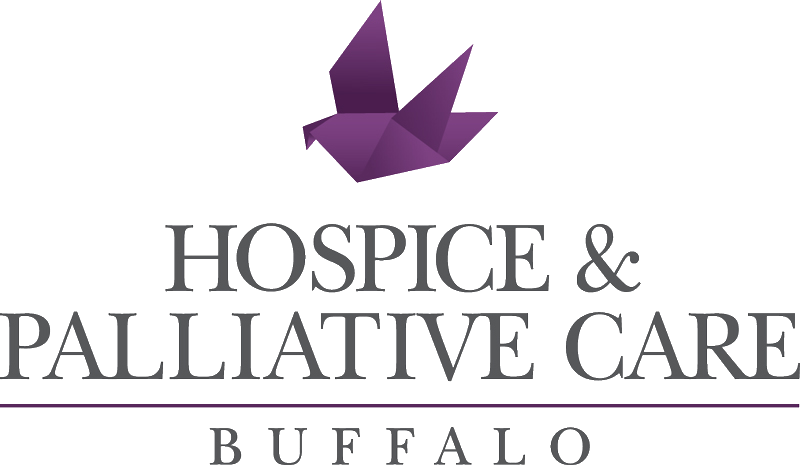Study on Inmate Peer Care Program Finds that Caring for Dying Fellow Inmates can Facilitate Positive Growth for the Incarcerated
Cheektowaga, NY – The Palliative Care Institute (PCI) team (Rachel M. Depner, Pei C. Grant, David J. Byrwa, Jennifer M. Breier, and Christopher W. Kerr, Hospice Buffalo Chief Medical), along with Debra L. Luczkiewicz, Hospice Buffalo Staff Physician, and community collaborator Jennifer Lodi-Smith, Canisius College Professor, worked together to explore an ongoing inmate-facilitated hospice care program. The study resulted in the article “A consensus qualitative research analysis of the experience of inmate hospice caregivers: posttraumatic growth while incarcerated.” Death Studies, Nov., 2016, 1 – 12.
Elderly inmates are the largest growing incarcerated population and there have been universal difficulties in providing access for them to palliative and hospice care.1,2 Some correctional facilities have begun to train healthy inmates to serve a similar role as a home health or nurse’s aide. With special training provided by Hospice Buffalo staff, one correctional facility has been able to maintain an inmate peer-care program for over a decade.
The Palliative Care Buffalo Research team was granted permission to conduct in-person interviews with twenty-two healthy inmates who were trained to provide care to dying fellow inmates in a maximum security, state correctional facility in northeastern United States. Interview topics ranged from questions about the program to motivations for being part of the program, questions about the inmate caregiver’s meaning and purpose in life, what it was like to care for the dying, to their thoughts and feelings about death and dying.
Results from their study were surprising. Not only is this program a unique solution to the mounting problem of inmate access to end-of-life care, but findings in this study showed that hospice care not only benefits the dying, but the inmate-caregivers as well. One Inmate Caregiver commented, “For me, experiencing hospice showed me another side. There is so much you can learn from the dying. The dying teaches the living.”
Five themes were present throughout the data:
• Confronting Death and Dying
• Personal Growth and Transformation
• Program Description
• Connecting with Others
• Motivation
Several interviewees discussed how caring for the dying gave them a sense of worth – one participant expressed, “You do wrong all your life and you kind of look at it as this worthlessness that you have. But then this kind of gives me worth...Not doing bad and evil, but I am worth something to somebody…I can be a blessing and not a curse in people’s lives.”
In addition to exploring changes in self, the interviewees discussed how participating in the hospice program was a catalyst for said changes. The program offered opportunity for change, growth from developing relationships, and growth from helping the dying.
“It [caring for the dying] made me a better man. It made me look at what someone needs to go on…And it made me realize that no matter what, you gotta do the right thing for someone at least once in your life,” expressed one participant.
This study brings into focus the experience that inmate-caregivers are having, and the reality of their lives as they care for their fellow dying inmates. Through confronting death and dying, finding personal meaning and opportunity, as well as building significant relationships, inmate-caregivers have the potential for positive growth and personal transformation. This program provided an opportunity for inmates to pursue meaningful work in an otherwise isolating environment.
Click to read the full Prison Study.
References:
1. Cloyes, K., & Rosenkranz, S. (2014). To be truly alive motivation among prison inmate hospice volunteers and the transformative process of end-of-life peer care service. American Journal of Hospice and Palliative Medicine, 31, 735–748. doi:10.1177/1049909113506035
2. Williams, B. A., Stern, M. F., Mellow, J., Safer, M., & Greifinger, R. B. (2012). Aging in correctional custody: Setting a policy agenda for older prisoner health care. American Journal of Public Health, 102, 1475–1481. doi:10.2105/AJPH.2012.300704
About The Palliative Care Institute
The Palliative Care Institute (PCI) was established to advance the scope of palliative care awareness, education and research. PCI not only seeks to educate current and future professionals about palliative care, but also the community at large. PCI is an affiliate of The Center for Hospice & Palliative Care and is located at Hospice Buffalo’s Mitchell Campus in Cheektowaga, NY.
